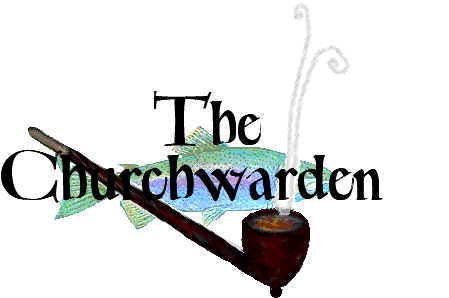
"An Angler's Winter"
by Reed Munson


The trout season ends and we store away the gear for another year, but around February or March the angler starts to think about the upcoming season. The mail order catalogs remind us of gear we've been depriving ourselves of, or perhaps the fly tying vise is dusted off and--as the piles of nymphs and dries begin to accumulate--plans for next spring's campaign begin to form.
I always look forward to that first time in the New Year when I check out my equipment. Should I clean and reverse my old double-taper? Do I have any leaders left over from the last outing of the previous season? What kind of shape are the fly boxes in?
It's a ritual all anglers go through in the winter, some perhaps later than others. Maybe they wait until March or even early April because they have other winter diversions, but inevitably the vest is emptied out and the rods, reels and lines are gone over.

One thing I attempt to do each winter is go through my fly boxes and cull out all the undesirable patterns--patterns I thought would be great but weren't, patterns for unusual situations I've yet to encounter, or patterns that were once decent enough but have since become embarrassingly poor examples of my fly tying ability. All of these rejected flies are put in a heap, then divided into three or four cough drop tins and donated to the church craft sale. I'm told they're quickly picked up by some of my fellow fly rodding church members who like them for pan fish.
My eventual goal is to get down to two boxes--one for dries, one for wets. I suppose actually buying real the thing would be a good place to start. My collection of compartmentalized craft boxes and small cough drop containers rapidly fills the many pockets in my vest. This makes me look like a serious angler--all those pockets filled up, you know--but I can't tell you the last time that little coffer of Kaufman Hares Ears saw duty on a trout stream.
Then there are the sentimental flies. Do you have a vest pocket dedicated to a box of uniquely personal flies? I have a six compartment spring-loaded plastic box with the first six flies I ever owned. My dad bought them for me when I was twelve years old and determined to become a fly fisherman. I was so scared at the very thought of loosing any I think I only used one--once. Nonetheless, I still carry the flies. I can't bear to part with them or remove them from my vest. They are my sacred flies, brought out strictly in moments of extreme need--not to be used, only to be considered.

The angler's winter is not complete without some earnest study of the latest catalogs. Catalogs are great sources of knowledge to fly fishermen. From catalogs we learn what a leader loop connector is, or why we need gravel guards. Pros and cons of an intermediate sinking line versus a sinking tip become clear. Clear photographs of Hornbergs, Griffith's Gnats and Emergent Sparkle Pupae bring meaning to tactical descriptions from angling literature. Beautiful color catalogs from Kaufman's Streambourn or Dan Bailey's Flyshop spark the imagination and inspire each of us to do our utmost to acquire one of those new Orvis large arbor reels. Sure they're $200 and the trout don't notice them, but the advertisement practically guarantees success!

Then there's fishing literature. The next best thing to fishing is reading about fishing! Sometimes it's hard to discuss literature with friends and family. "All you read are those fish books," my wife laments. I'll admit Trout Stream Tactics, or Night Fishing for Trout, or Practical Fly Tying may seem dull, but to the angler they are founts of knowledge. My favorite books are those written back before fly fishing suddenly became popular.
Books published between the 1930�s and 1970�s offer wonderful insight into the true heritage of fly fishing. Sparse Grey Hackle, Roderick Haig-Brown and Howard T. Walden are three favorite classic authors. Through their writings you can see what fly fishing once was and where today's conservation philosophies originated.
First class literature about angling can transport you to streams you might never get to fish in reality, and shed light upon eras in fishing history you may have never considered. This adventure of the imagination can keep an angler motivated during those cold winter months.

Perhaps if we fished year round we might become bored with fly fishing. Perhaps a winter break is a blessing that makes us appreciate spring and summer even more. Fly fishing is a big undertaking. There is much to be done in the off season, many books to read, lots of flies to tie. Just pausing to remember the sights and sounds of past outings, savoring those pictures that adorn the walls of our memories--these are all good things to do on a peaceful winter evening.

�copyright 2001, Perry S. Fuller
Sign Guestbook
View Guestbook
